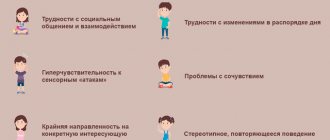Quite often, situations arise in people’s lives that unsettle them, when everything doesn’t go according to plan and doesn’t go well. A person becomes upset, he feels sad, sad, and believes that he is depressed. However, in most cases this is absolutely not the case. Only a doctor can diagnose depressive disorder.
What is depression, what are its causes, symptoms and treatment?
We will try to figure this out in our article.
What is depression?
Don't think it's just a bad mood or apathy.
If you have blues and despondency, this does not mean that there is depression. In fact, this is a disease that is characterized by serious changes in the biochemical processes of the human brain. Signs of the disease may persist for more than two weeks, while ordinary frustration or sadness disappears much sooner. In the absence of timely treatment for severe depression, the condition drags on for years and develops into an intractable chronic form. It often happens that a person does not even realize that he is sick. It is important to understand that treatment of neuroses and depression is necessary, this should be done by a specialist with extensive experience in this field. What is clinical depression , and why does it require treatment? The disease develops due to a disruption in the production of certain neurotransmitters in the brain, which are responsible for receiving positive emotions. The disease makes a person apathetic, he is rarely in a good mood, and most often has a pessimistic attitude.
Nootropics
Nootropics are drugs that have a positive effect on the functionality of the higher integrative parts of the brain. That is, they have a positive effect on mental abilities and increase the activity of cognitive functions. A person becomes more learnable, his memory processes and resistance to distress improve. There are several groups of nootropics:
- “true” nootropics, the action of which is concentrated on improving mnestic functions;
- group of neuroprotectors - the mnestic effect is secondary, the effect on the central nervous system is mixed (anticonvulsant, muscle relaxant, antihypoxic);
- primary action nootropics - directly affect nerve cells;
- secondary action - improve cerebral blood flow, microcirculation, have pronounced antiplatelet and antihypoxic effects;
- neurodynamic or neuroregulatory - primarily aimed at stimulating metabolic processes in nervous tissues, prescribed to patients with anoxia, ischemia, intoxication, and injury.
Nootropics affect the processes of metabolism and bioenergy metabolism in nervous tissue; they interact with the neurotransmitter sphere of the brain. Children are prescribed with caution, in small dosages.
Nootropics are not recommended for use during pregnancy and lactation, gastric ulcers, feverish conditions, problems with the liver and kidneys. Nootropics are not prescribed to patients with sensitivity to components or epilepsy. During use, it is recommended to undergo blood and urine tests in a timely manner to assess the results of the course of nootropics.
Causes and symptoms
The reasons for the development of this disease can be regular stress, psychological trauma, various unpleasant situations and events, problems in relationships with loved ones, the opposite sex, psychological violence in childhood or adulthood. However, such a deviation in the psycho-emotional state is not only a consequence of injuries, it is also various changes at the physical level. In particular, patients have a lack of vitamin D, iron and some other microelements and biologically active substances.
In addition, the development of the disease is largely influenced by hormonal disorders and diseases of the endocrine system. Quite rarely, the disorder occurs as a side effect of taking medications, but this is usually prescribed in the instructions. Vitamin D deficiency is associated with a lack of sun; in the fall and spring, many people experience exacerbation of mental disorders.
Will depression go away or is it forever?
If the disease lasts for a long time, many people begin to fear that they will never be able to get rid of it. Is it so? If the disease is mild, you can cope with it yourself. Sooner or later a person will experience a traumatic situation, reevaluate it, change his attitude towards the event and recover. In some cases, the use of medications leads to a bad mood, but after their withdrawal the condition returns to normal. Any psychiatrist, psychologist or psychotherapist will tell you that treatment for depression is necessary. This will allow a person to get rid of obsessive thoughts and gain more positive thinking, which will increase the quality of life, and possibly its duration.
Without treatment for depression in women and men, the disease will progress, exacerbating the psycho-emotional state and causing the development of mental disorders, especially for older people. But even for young people the disease does not go away without a trace. You shouldn’t fight it alone, share your problems with loved ones and friends, look at them from the outside, listen to advice, consult a doctor for treatment of panic attacks, moderate and severe depression.
- You can't convince me to get treatment
? - We will help you with motivation for treatment. As a rule, it is difficult for loved ones to persuade or force an addict to undergo treatment. World experts have developed EFFECTIVE motivation schemes, using which you can lead an addict to the decision to seek help. 8
The best antidepressants: how to treat depression, apathy and anxiety?
May 12, 2021
6623
5
Content
- Antidepressants without a prescription
- Afobazole
- Persen
- Novo-passit
- Tryptophan
- Prescription antidepressants
- Zoloft
- Doxepin
- Paroxetine
- Melipramine
It often happens that a person is in a bad mood, he literally gives up and doesn’t want to do anything. This is usually how a mental disorder begins to develop, so try to listen to your body in order to start treatment on time. Depression is a condition in which a person ceases to experience joy, negative thoughts appear, and physical activity decreases. This situation requires urgent consultation with a psychotherapist and the prescription of antidepressants.
Types of disorder
With the right methods, medications and treatment plan, the disease can be stopped and cured, regardless of the stage and duration of development. If the disorder is caused by the absence or deficiency of certain vitamins and substances in the body, the person’s condition will normalize as soon as the balance is restored. When treating endogenous or psychogenic depression, special complex therapy is required. In the first case, the disease is caused by a malfunction of the psyche, in the second – by traumatic events.
For example, an elderly woman can take the death of her husband to heart; the loss of a person with whom she lived hand in hand is very traumatic, which can cause the development of not only neuroses, but also dementia. In this case, doctors advise treating depression in women in a clinic.
Treatment for postpartum depression, which is very important for a young mother, is no less dangerous. During pregnancy and after childbirth, a huge number of changes occur in a woman’s body. Not everyone gets used to the new role right away; some are afraid of the oncoming responsibility; others are not confident in the support of their spouse. The result is mental disorder, panic attacks, unreasonable fears, breakdowns.
Today, specialists quite often treat bipolar depression. This disease is getting younger every year, but it should not be confused with a number of other abnormalities. Bipolar disorder is often confused with increased emotionality. If you feel the symptoms of this disease, call the clinic; today it is possible to both treat depression in a hospital in Moscow and undergo therapy on an outpatient basis.
Do you want to know about the cost of services?
8 call our specialist
Zoloft
Zoloft belongs to the selective serotonin reuptake inhibitor class of antidepressants. This antidepressant is prescribed for mild to moderate depression, panic attacks, phobias, obsessive-compulsive disorder, and post-traumatic stress disorder.
Zoloft should not be taken in parallel with monoamine oxidase inhibitors, during pregnancy, with liver disease, underweight and in children under 6 years of age. The effect of taking Zoloft appears after 2-4 weeks.
Zoloft
Pfizer (Pfizer), USA
— depression of various etiologies (treatment and prevention);
— obsessive-compulsive disorders (OCD); - panic disorders; — post-traumatic stress disorder (PTSD); - social phobia. from 135
772
- Like
- Write a review
Read also Top 5 drugs for low blood pressure Top 5 effective and safe drugs for low blood pressure.
Treatment of anxiety-depressive disorder without antidepressants
Many people do not want to see a doctor because they think that only drug treatment for depression with antidepressants is possible. They have heard about the side effects and high risk of developing drug addiction, as well as various myths about the dangers of these drugs. The dangers of antidepressants are greatly overestimated. Do not think that in modern medicine there are only drugs and pills for treating depression. Fearing often far-fetched consequences, people turn to homeopathy for help, which, naturally, will not give any result other than a placebo.
Today, there are completely different and varied methods of treating depression, and in many cases it is possible to do without medications. As a rule, pills are not even the basis of treatment, but maintenance therapy during psychotherapy. If you consult a doctor in a timely manner and begin effective treatment for depression in Moscow, you can do without medications.
Anonymous 24 hours a day Activity is licensed Patient accompaniment
Full range of narcology services:
- tests
- drug testing
- detox
- encoding
- psychiatry
- binder
- withdrawal symptoms
8+7
Antidepressants without a prescription
Depression in its early stages, when there are mood swings, apathy and anxiety, can be treated with over-the-counter antidepressants. Typically, such drugs have almost no side effects, are well tolerated, and are often herbal. But it is worth considering that self-medication is still inappropriate here - any antidepressants should be prescribed by a doctor. So, the best antidepressants without a prescription.
Read also: Top 5 drugs for insomnia that are sold without a prescription The best over-the-counter drugs for the treatment of insomnia
How dangerous are antidepressants for the human body?
Are antidepressants dangerous to your health? People are as afraid of these drugs as they are of antibiotics. There are many myths around these medications. How dangerous are antidepressants really? First of all, you should understand that no doctor will prescribe you a potent drug without indications for it.
Modern medicines have a rather gentle effect on the human body, bringing great benefits to patients and bringing them closer to recovery much faster. The drugs affect the production of necessary neurotransmitters and compensate for the lack of serotonin and endorphins. As a result, within a couple of weeks the patient begins to feel many times better than before the start of therapy.
However, the positive effect of the tablets does not occur immediately; over the course of several weeks, the human body adapts, which is why some side effects occur. They often cause patients to stop taking medications because they feel like their condition is only getting worse. However, you should be prepared for the fact that these are not magic pills that will help you get rid of a serious illness overnight. Most medications have a cumulative effect.
A competent specialist knows in what dosages a particular drug should be taken. Most often, the dose is increased gradually, as the body gets used to it, which is why at the beginning of taking it the expected effect will be absent. It is important for patients to stay in touch with their doctor to inform him of any changes. If your health condition worsens, tell your doctor. If you follow the recommendations, the medications will only bring benefits and a significant improvement in your well-being.
Doxepin
This antidepressant is prescribed for mild to moderate depression. This drug belongs to the tricyclic antidepressants and has a sedative and antiphobic effect. Doxepin improves mood, reduces apathy and anxiety. This drug is used to treat alcoholism. The results from taking Doxepin become noticeable 2-3 weeks after starting treatment. Among the side effects (they occur rarely): decreased libido, swelling, gastrointestinal problems, drowsiness, migraine.
Doxepin
Ratiopharm, Germany; TEVA, Ukraine; Polfa, Poland
Doxepin is an antidepressant, a non-selective monoamine reuptake inhibitor, belongs to the group of tricyclic antidepressants.
The antidepressant effect is combined with anxiolytic and sedative. Does not cause euphoria or psychomotor agitation. from 700
5.0 1 review
467
- Like
- Write a review
Antidepressant addiction – myth or truth?
It is impossible to say unequivocally that drugs for depression are evil. But also the fact that they are absolutely harmless. Medicine does not stand still, just like pharmacology. Medicines are constantly being improved and improved. Today, those medications that caused drug addiction and posed a real threat to health due to side effects are long gone. The latest generation of drugs is much safer than their predecessors.
In some cases, patients have to take medications for years, not because they become dependent, but because the treatment plan and indications require it. However, most often, when contacting specialists at an early stage of the disease, the use of drugs is not required, or a short course of treatment is required. The dosage is gradually reduced, which prevents the development of drug dependence. A person gradually gets used to living without medications.
However, the truth is that while most of these pills are banned from over-the-counter sales, some people circumvent the law and purchase them illegally. Why is this being done? The fact is that some drugs, when overdosed and used for a long time, can still be addictive. Some of the most common over-the-counter drugs include Lyrica and Fluoxetine (Prozac). When used for other purposes, for recreational purposes, the drugs can cause addiction, which can only be gotten rid of with the help of a narcologist.
You should not self-medicate, increase the duration of use and dose, this can lead to undesirable consequences and side effects. If you feel you cannot stop taking the drug, call your doctor. He can help you get rid of your addiction.
Novo-passit
Novo-Passit is another popular and effective herbal-based antidepressant. Novo-passit contains: St. John's wort, valerian, elderberry, lemon balm. Thanks to its calming effect on the nervous system, anxiety and irritability are significantly reduced. In addition to treating depression, Novo-Passit is indicated for increased fatigue and decreased concentration. After a course of taking Novo-Passit, the functioning of the nervous system noticeably improves, and the symptoms of depression go away.
Novo-Passit
IVEX Pharmaceuticals, Czech Republic; Teva Pharmaceutical Industries, Germany
Novo-passit is a combination drug, the pharmacological activity of which is due to its constituent components of an extract based on medicinal plant raw materials with a predominantly sedative (calming) effect and guaifenesin, which has an anxiolytic (anti-anxiety) effect.
from 161
5.0 1 review
2224
- Like
- Write a review
Read also How to treat migraine: the best drugs Top 5 best drugs against migraine
Is it possible to get rid of depression once and for all?
Is it possible to cure anxiety-depressive disorder? It is impossible to answer this question unequivocally in the affirmative. The disease can progress in different ways and have many concomitant diseases of varying severity. Each individual case should be considered individually. In most cases, depressive disorder can be treated, but the risk that the disease will return or remain permanently cannot be ruled out. It is very important to monitor any changes and, if necessary and if there is a visible deterioration in the condition, immediately contact a psychotherapist.
Following your doctor's recommendations and taking preventive measures will help you avoid relapse. You need to get into the habit of doing sports, physical education, or at least gymnastics in the morning. Remember that no one will take care of you except you. Forget about smoking and alcohol, bad habits only provoke the development of depression. It is also important to maintain a sleep schedule; sleep less than eight hours leads to negative processes in the central nervous system and has an undesirable effect on the psyche. Avoid stress as much as possible.
How can the doctor help?
There is a huge mistrust of doctors in our country. The rather low level of medicine in the regions, lack of funding, low salaries of doctors, and with it a negligent attitude towards work also have an impact. Of course, there are good and bad doctors and clinics; if you do not trust budget institutions, contact a private center.
If you have symptoms of the disorder, you should immediately contact a psychotherapist. A specialist will be able to quickly recognize the disease, carry out diagnostics and take tests, examine the patient and draw up an individual psychopharmacological treatment plan. Clinical psychologists at our center can also make a diagnosis of depressive disorder. Quite often our patients experience alcoholic depression due to prolonged abuse of alcoholic beverages. “Center for Healthy Youth” has all the capabilities, experience and necessary resources to eliminate all symptoms of the disease and normalize the psycho-emotional state of the patient.
Many people are afraid of psychologists. “Am I crazy?” – can often be heard from patients. However, neuroses and depressive states do not mean that a person is mentally ill, and he will be admitted to a mental hospital and registered. When contacting a private center, people are treated completely anonymously. Even if you go to a public clinic, you will not be registered at the dispensary. Specialists do not have the right to disclose the diagnosis or provide information about the patient’s condition to third parties, since this is a medical confidentiality. A person can go through the treatment process completely calmly. Quite often, an experienced doctor will only need to conduct psychotherapy sessions in order to achieve stable remission. Personal communication with a doctor and following his recommendations is all that is needed for a speedy recovery. You should not prescribe medications yourself, it can end badly.
If you feel increasing symptoms of depression, you should not wait for a miracle and live with it for years, there is a way out, modern techniques and the latest drugs will help you cope with the disease. Doctors will help you regain the joy of life even with chronic pathology.
Treatment of depression. How to cope with the disease?
Depression (depressive syndrome) is one of the most typical psychopathological syndromes and can occur in almost all mental illnesses. The main type is the so-called endogenous depression - recurrent depressive disorder, the depressive phase of bipolar affective disorder (BD), a single attack of endogenous depression usually in old age, depression in the structure of schizophrenia. In the classification, depression is divided by severity - mild, moderate and severe.
Symptoms of depression that need to be treated
The typical clinical picture of depression, which requires drug treatment, is characterized by a depressive triad, which is manifested by decreased mood, slow thinking and motor inhibition, as well as somatic symptoms of sympathicotonia (in particular, tachycardia, constipation, weight loss, increased blood pressure, mydriasis - dilatation pupils, dry skin and mucous membranes). The above symptoms may be accompanied by anxiety, melancholy, hopelessness, sleep disturbance and cognitive function, decreased appetite and libido.
General principles of treatment for depression
Treatment of depression combines two aspects - pharmacological and psychotherapeutic, that is, drug therapy is used, as well as psychotherapy. The possibility of psychotherapy depends on the severity of depression and, accordingly, the patient’s ability to cognitively function. Because in depressed patients, the ability to concentrate attention and perceive information suffers, and therefore, with a certain degree of severity of depressive symptoms, patients are simply not able to work with a psychotherapist or psychologist, as well as perform psychotherapeutic techniques. Here, of course, you need to adhere to the basic principle: first, treat the patient with medication, relieve anxiety, normalize sleep, reduce the intensity of depressive symptoms, and then cognitive functions will significantly improve, which will make it possible to subsequently include psychotherapy for rehabilitation.
In the context of psychotherapeutic treatment, it is also necessary to address such an issue as the type of depression. It can be endogenous (a depressive episode in the structure of bipolar affective disorder (BD), recurrent depressive disorder, depression in schizophrenia, etc.) or psychogenic, when the occurrence of a depressive state is based on a psychological factor or a traumatic situation. That is, depending on the severity of depression (psychotic or non-psychotic), the emphasis in treatment is on one of the aspects (pharmacological or psychotherapeutic). As a rule, mild depressive states, especially those where the cause of occurrence was a traumatic event, can respond well to psychotherapeutic correction without the use of antidepressants; anti-anxiety drugs are sufficient here. Severe depressive episodes should be treated with medication using antidepressants. Let's consider the basic principles of helping patients with depression.
Treatment of depression with antidepressants
Despite the fact that depressive conditions can sometimes be reversed without treatment, the use of drug therapy with antidepressants accelerates the recovery process, improves the course of the pathology and prevents relapses.
Also, a very important reason for prescribing psychopharmacological treatment is the high likelihood of suicide in patients with depression.
Timing of taking antidepressants in the treatment of depression
Treatment begins with small doses of antidepressants, which are gradually titrated (adjusted) until the proper therapeutic effect is achieved. Any changes in drug dosage should be under the strict supervision of a physician to prevent side effects. Underestimating the doses of antidepressants used contributes to the chronification of a depressive state, the formation of therapeutic resistance (when the level of response to an antidepressant decreases), an increase in the time required to achieve remission, as well as a decrease in the quality of life of patients and the risk of suicidal thoughts and intentions.
Features of the use of antidepressants
It is necessary to understand that antidepressants begin to act only after 3 weeks from the start of treatment, which, in combination with a significant deterioration in the quality of life, is especially painful for the patient. All this time, anxiety, internal tension, sleep disturbances and other manifestations of depression may persist. Therefore, from the very beginning of treatment until the start of action of antidepressants (for a month or more), it is necessary to take sedative therapy - tranquilizers and/or anti-anxiety drugs (anxiolytics), and also, possibly, sleeping pills. They will reduce the intensity of anxiety, improve sleep, but will not affect low mood, lack of joy, as well as the desire and ability to perform usual work (partly due to cognitive failure). Therefore, patients do not feel an improvement in their condition for 1-2-3 weeks after starting treatment with antidepressants, they stop taking them, citing the fact that “it doesn’t help me.” How can an antidepressant help before it starts working?
But when antidepressants begin to work, the intensity of depression will decrease. And along with anxiety, the activity of the sympathetic part of the autonomic nervous system will decrease, which will lead to the elimination of heartbeat, a decrease in high blood pressure, restoration of the motor function of the stomach and intestines, an increase in the speed of motor reactions, muscle tone and other somatic symptoms that often mask the typical clinical picture of depression .
Treatments for Depression
Rules have been developed according to which, after a certain period of ineffectiveness of an antidepressant, it should be replaced by another, usually with a different mechanism of action. That is, if unsuccessful therapy was carried out with an antidepressant that affected only one neurotransmitter - serotonin, then it must be replaced with another antidepressant of polyvalent action, which will affect two neurotransmitter systems involved in the formation of depression - serotonergic and noradrenergic. If there is repeated ineffectiveness, a change to an antidepressant with a different mechanism of action may be necessary. There are also evidence-based recommendations for the combined use of two antidepressants, which can complement and enhance the effects of each other. But in this case, it is necessary to use antidepressants of various types, taking into account their compatibility in terms of various mechanisms of inhibition or stimulation of neurotransmitters (serotonin and norepinephrine). If a subsequent decrease in intensity and elimination of depressive symptoms is not observed, you need to think about adding additional drugs, for example, from the group of mood stabilizers.
Combination treatment for depression
When treating a depressive state, combination therapy can also be prescribed in the form of a combination of two antidepressants + a tranquilizer or anxiolytic (anti-anxiety drug) or an antidepressant + antipsychotic. The last option will be most appropriate if we are dealing with mental illnesses such as schizoaffective disorder with a depressive component, depressive-paranoid symptoms in schizophrenia, post-schizophrenic depression or recurrent depressive disorder with psychotic inclusions (delusional ideas of self-deprecation, guilt, sinfulness, etc. .).
Although it should be noted here that when treating depression, which is observed in schizophrenia and schizoaffective disorder, as well as post-schizophrenic depression, one must take into account the fact that antidepressants are propsychotics. And if in this case there is no “cover” with antipsychotic drugs when taking antidepressants, then an exacerbation of delusional or hallucinatory symptoms may be observed.
It should be noted that in the vast majority of cases, depression in schizophrenia is secondary, that is, the patient’s reaction to extremely frightening delusional-hallucinatory experiences. How can one be in a good mood if the patient has delusions of persecution and influence, and he is sure that he is in extreme danger, and he is being pursued by a gang that wants to deal with him and his family? What if unknown enemies act on him with electromagnetic waves and cause irreparable harm to his health? Therefore, in these situations, the patient’s mood, of course, will not be good. In such cases, it is not recommended to prescribe antidepressants, since this leads to a protracted course and therapeutic resistance (immunity to antipsychotic drugs) of schizophrenic symptoms. And even rare cases of primary (endogenous) depression in the structure of a schizophrenic attack are not an absolute indication for the addition of an antidepressant, as evidenced by the results of a meta-analysis (summarization) of literature sources.
When treating a depressive state in schizoaffective or bipolar affective disorder, one must not forget about the possibility of phase inversion into manic, which can be observed even with the mandatory use of mood stabilizers. Therefore, correct dosing of thymostabilizers should be carried out with the obligatory determination of the exact dose of daily intake, based on laboratory data when determining the amount of the drug in the blood serum, when the indicator should be in the therapeutic window.
If we talk about post-schizophrenic depression, then it must be said that the rapid achievement of complete remissions in schizophrenia, when there is a complete absence of hallucinatory-paranoid symptoms, is associated with the frequency of its occurrence and the severity of depressive symptoms.
How long does it take to treat depression?
The treatment process for depression can be divided into two stages. The first phase of treatment for depression is active therapy, when medication is aimed at eliminating depressive symptoms. An equally important stage in the treatment of depression is anti-relapse (preventive) therapy, which lasts much longer.
Active therapy for depression
Treatment with therapeutic doses of antidepressants lasts 6-7 months, although relief of depression symptoms usually occurs much earlier - within 1-2 months. But therapeutically resistant and prolonged (over 1 year) depression is often observed. In these cases, active therapy is carried out longer and is accompanied by a change or combination of antidepressants. During the active phase of therapy, symptoms of depression such as motor retardation, agitation - severe anxiety, suicidal thoughts, persistent low mood, possible delusional ideas of self-deprecation and self-blame, as well as the somatic symptom complex that accompanies depression - are relieved.
In this case, it is important not to underestimate the dose of drugs, taking into account the recommendations, and a combination of two antidepressants is also possible, taking into account their action profile. Treatment with antidepressants can, if necessary, be supplemented by the prescription of mood stabilizers or antipsychotics, as mentioned at the beginning of the article. There are also other methods to overcome resistance in the treatment of depression.
Preventive therapy for depression
Taking preventive therapy prevents the recurrence (recurrence) of the disease, i.e. helps to avoid relapse of the disease, the likelihood of which immediately after the main period of treatment is very high. Prophylactic medication should be continued over a long period of time. It is believed that anti-relapse therapy can be canceled without risk only with the appearance of the first clear signs of cerebral atherosclerosis. It is worth considering that preventive therapy with mood stabilizers ensures the prevention of relapses only after 1.5 years of continuous use. During this period, relapses of depression are possible, which are less pronounced and shorter lasting. It is very important to understand that such relapses are not an indicator of the ineffectiveness of anti-relapse drugs (thymostabilizers) and a reason for their discontinuation. Relapses of depression can be treated with antidepressants while continuing to take mood stabilizers. This reduces the likelihood of a recurrent attack of the disease.
Treatment methods for depression. Psychotherapy for depression
As already reported at the beginning of this article, psychotherapy is possible for mild degrees of depression. This is due to the fact that in a depressed state, concentration and perception processes deteriorate, and in cases of moderate and severe depression, it simply becomes impossible to conduct psychotherapy. In these cases, only after the use of drug therapy with antidepressants and improvement of the condition, as well as cognitive functions, it becomes possible to use psychotherapeutic techniques.
According to recent research, drug therapy for depression works most effectively in combination with cognitive behavioral (CBT) and interpersonal psychotherapy. The combination of these two approaches increases the possibility of achieving success in the treatment of depression.
The following psychotherapeutic methods and directions are the most recommended for depressed patients.
Individual psychotherapy for depression
During the session, the specialist studies the patient’s irrational cognitive attitudes, which cause distorted emotional reactions, and these, in turn, can cause maladaptation and the occurrence of depressive states in psychogenic depression. The patient learns to cope with these attitudes and replace them with other adaptation mechanisms. For example, a psychotherapist works on the patient’s established stereotypes of thinking: “Nothing will work out for me,” “I’m worthless,” “None of this makes sense.” Naturally, for sufficient compliance it is necessary to preliminarily carry out psychopharmacological treatment, especially in cases of severe depression. Often, ideas of self-deprecation, self-blame, low self-esteem, as well as lack of faith in oneself and the future, disappear as the patient recovers from depression during the treatment process. And then psychotherapy is often not necessary.
Group interpersonal psychotherapy in the treatment of depressive disorder
During the session, the patient learns to communicate with others, create harmonious social connections, and feel safe during communication. Group classes are important, they help a person understand that his problem is not unique, and there are other people with similar diseases. Sometimes the positive example of various patients allows you to be inspired and find the strength to get out of a depressive state, which has a positive effect on treatment.
Family psychotherapy with the participation of loved ones of a depressed patient
Unfortunately, relatives in many families act as a stress factor. To maintain comfortable relationships in the family, it is necessary to work with the patient’s loved ones. This makes it possible to reduce pressure on a person and create a favorable climate, which plays an important role in the treatment of depression.
Treatment of depression. Inpatient or outpatient treatment?
As a rule, mild and moderate depressive conditions can be treated on an outpatient basis. Severe depression with a psychotic component, suicidal thoughts and intentions require treatment in a hospital - this ensures the patient’s safety.
Prognosis for the treatment of depression
Modern antidepressants, the availability of approved protocols for the treatment of depressive disorder, the possibility of changing and combining drugs to achieve a better therapeutic effect, make it possible to predict with a high probability a significant improvement in mental health in depression.
Obstacles to achieving results may include underestimating doses of required medications, patient ignorance about the duration of therapy, and prejudices associated with long-term medication use.
Also, the human factor, the attitude of the patient himself, as well as a trusting relationship with the doctor play a significant role in the effectiveness of treatment for depression. If there is a desire to get well, to get away from the disease, then the likelihood of success increases significantly.









